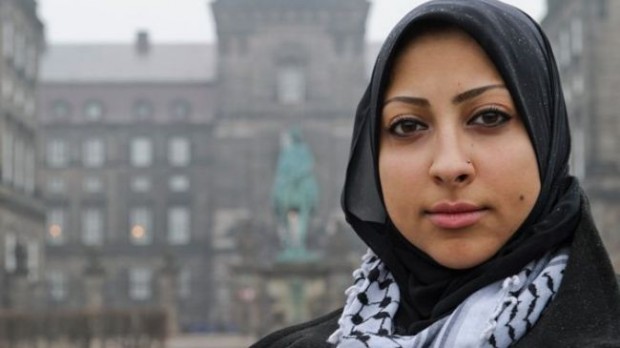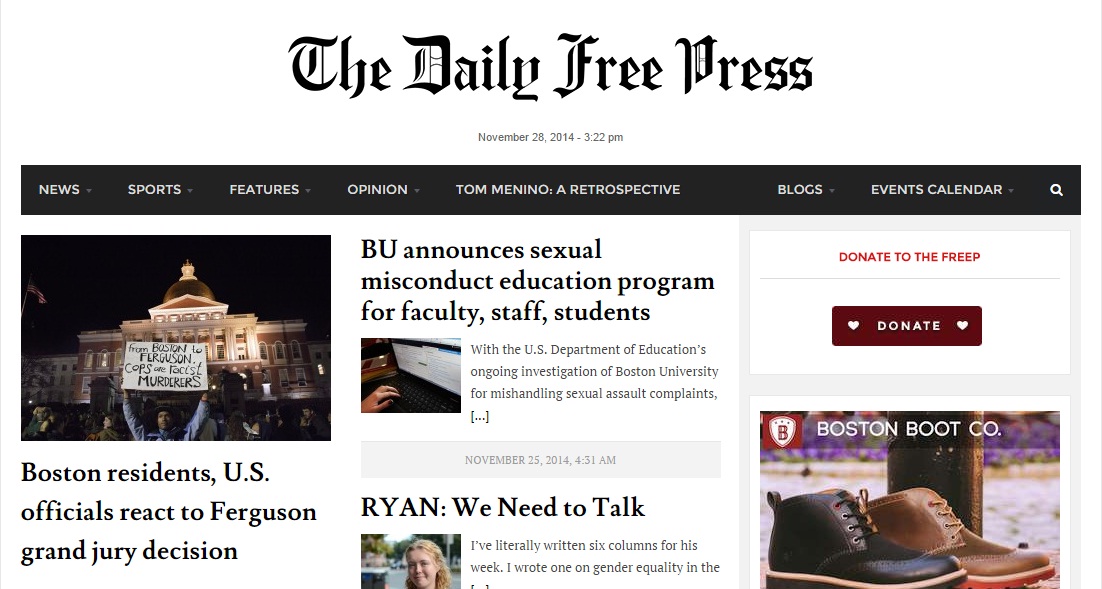3 Dec 2014 | Campaigns, Kazakhstan, Statements
The injunction banning distribution and publication of ADAMbol, a popular opposition magazine in Kazakhstan, is a clear violation of freedom of press and free expression.
The magazine has been accused of engaging in “extremist war propaganda” by Almaty City’s Department for Internal Policies. Some activists believe the magazine has been targeted over its coverage of Ukraine’s Maidan protests. In addition to ordering the closure of the magazine, the injunction from Almaty district court on 20 November also demands the confiscation of all printed copies of the magazine.
Cracking down on media is a well known tactic for authorities to silence dissent and stifle debate — and one Kazakhstan has made good use of in recent times. Since late 2013, over 30 media outlets have been closed in the country, over various administrative code violations or allegations of extremism.
Index calls on Kazakhstan’s authorities to end the assault on the media and respect their citizens’ right to free expression.
1 Dec 2014 | Bahrain, News and features

As a human rights defender, I, Maryam Al-Khawaja, Director of Advocacy at the Gulf Center for Human Rights, have decided to boycott my court hearing on the 1 December 2014. During this hearing I am due to be sentenced on trumped up charges of assaulting two policewomen at the Bahrain International Airport. (Update: Al-Khawaja was sentenced to one year imprisonment on 1 December)
The decision to boycott the court was reached based on several grounds:
- The lack of independence and due process in the Bahrain judiciary system:
It has become evidently clear that it is not possible to have a fair and independent trial in Bahraini courts as they stand. The judicial system in Bahrain is highly flawed, and is overrun with egregious human rights violations which usually start during the arrest, and continue throughout what is supposed to be a legal process. I was personally subjected to numerous human rights violations since the moment of arriving in Bahrain and until I was able to leave the country as can be read in my testimony here.
There are medical reports about the injuries I sustained during the assault I was subjected to, for which I continue to need physiotherapy. My case was sped up, and quickly turned for sentencing with complete disregard to legal procedures.
- The lack of independency and neutrality of the judge himself:
The presiding judge, Mohammed Ali Alkhalifa, in the case brought against me is a member of the ruling family, and has been himself, as well as members of his family, identified previously during my advocacy campaigns as implicated in human rights violations. This makes his presiding over the case a clear case of conflict of interest given the personal grievances he may have against me. This judge in particular, it is important to note, has been involved in the sentencing of numerous human rights defenders including Nabeel Rajab and Naji Fateel in unfair trials.
- The cooperation of the Special Investigations Unit (SIU) with the Ministry of Interior:
During my imprisonment I met with the SIU, headed by Nawaf Hamza, to submit a complaint against the three policewomen and the first lieutenant who assaulted me at the airport. The prosecutor, Mohammed Al-Hazaa, rewrote my statement in his own words, attempting to implicate me in violations, and refused to correct what he had misquoted. This resulted in my refusal to sign the papers and filing of a complaint against the prosecutor. One day before the sentencing, namely on the 30th of November 2014, and due to almost daily follow up by my lawyer, the public prosecution notified him that the complaint case had been revoked. Despite my complaint about the assault since the beginning of my arrest, it was only one day before the sentencing that my lawyer was finally able to get a statement from the public prosecution that my complaint case had been revoked, at a time when the trumped up assault charges against myself were speedily processed and turned for sentencing.
- The violation of my rights by the public prosecution:
During the interrogation I was subjected to, I was refused access to my lawyer by the prosecutor dealing with my case. During my imprisonment my lawyer was not given any visits, nor was the Danish embassy. The way that the public prosecution deals with politically motivated cases is it uses all aspects of the government to provide impunity for the perpetrators of violations.
Based on the reasons stated above, I find any and all cooperation with the court or attendance of the hearings by myself as a problematic legitimisation of an unfair and biased court. Therefore I have decided to boycott the hearings, and have asked my lawyer to do the same.
It is important to note here, if I, as a human rights defender, whose case receives international media and diplomatic attention is handled in this way; it is gravely concerning how cases not receiving attention are handled by the authorities in Bahrain.
Maryam Al-Khawaja
Director of Advocacy
Gulf Center for Human Rights
30th November 2014
This statement was originally posted on the website of the Gulf Center for Human Rights on 30 November
28 Nov 2014 | Academic Freedom, News and features, United States

Independent student newspapers struggle in an increasingly digital world. Advertising revenue is shrinking. Budding journalists must learn how to fill the gap while maintaining news coverage free of administration censorship.
Of the more than 500 student newspapers in the US, Index spoke with two papers about their work and how they finance themselves independently.
“We really value our independent status because it allows us to be critical of the administration and be a watchdog of our university,” Kyle Plantz, editor-in-chief at Boston University’s Daily Free Press, said in an email interview.
The paper formed in 1970 after the university’s then president John Silber cut funding to two campus publications to prevent coverage of Kent State protests. As a result they merged to become the Free Press.
In recent years, Daily Free Press staff has written articles covering topics on campus such as gender neutral housing and students’ issues with the Student Activities Office, which oversees student organisations. In late 2011-2012, the paper provided extensive coverage of the arrest of two ice hockey players charged with sexual assault.
Nicole Brown, editor-in-chief at New York University’s Washington Square Press, also said her paper acts as a watchdog on the NYU administration.
“We need to be able to question our university and present information to the community,” Brown said. “We also need to be able to voice our opinions without fear of being punished for those opinions.”
The Washington Square Press keeps an open dialogue on campus through its feature, NYU Reacts. It includes students’ thoughts on topics ranging from ISIS subway threats to pro-democracy protests in Hong Kong. The paper also publishes articles on sensitive issues, such as a November 2013 piece in which NYU faculty express concern over the London campus’s rapid expansion.
Many student papers struggle to maintain steady revenue. Brown said the Washington Square Press relies on advertising, sold and managed by student staff.
“With a move toward more online content, there are more opportunities to sell ad spaces online, as well as in print,” Brown said.
For the Free Press, nearly $70,000 (£44,576.05) debt to their printers recently threatened to shutter their publication. They switched from publishing four days a week to once a week and, on 10 November, launched a crowd-sourcing campaign.
The paper surpassed their goal and raised over $82,000 in just three days, with Daily Free Press alumnus Bill O’Reilly donating $10,000 and local businessman Ernie Boch Jr. donating $50,000.
“[Reducing publication], along with cutting some other costs, we are able to continue to receive ad revenue and sustain our weekly print edition,” Plantz said. “We are assessing how we want to use [the extra funds] and what will be beneficial to our organization in the future.”
Independent newspapers must find a way to financially sustain themselves or campuses will lose reliable, student-run news.
As Plantz said, “We are one of the only outlets that allow students to have a voice, question authority, and be a place for students, faculty, staff, and the administration to come together to learn about what’s happening on campus.”
This article was originally posted 28 November on indexoncensorship.org



